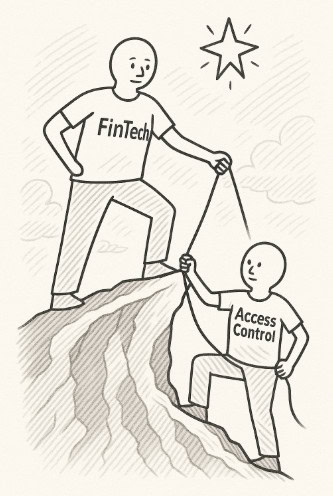Using metal keys is like storing cash under your mattress – or what Digital Access can learn from FinTechs
5th May 2025 | by Karsten Nölling (KIWI CEO) & Dr.-Ing. Florian Merz (KIWI CTO)
For over a decade, we’ve regularly heard some version of the same question from customers: “But is digital access really secure?”
And our answer is almost always a variation of this: “Yes it is, especially when you compare it to the security risks of traditional metal keys.” We often follow up with a simple analogy: “Think of digital access like online banking. If you trust a bank to store your money digitally and move thousands of euros with just a few clicks, then trusting digital access systems should feel just as natural. You log in with your email and password – optionally with two-factor authentication – and the process is very similar.”
For those customers that are especially hard to convince, we sometimes go one step further and ask them if they store their cash under the mattress – a pretty similar security level to using metal keys.
But those quick analogies actually undersell the much deeper similarities between digital access and financial technology (FinTech). And considering how far ahead FinTechs are on the innovation curve, there’s a lot we can learn from them in digital access.
Let’s unpack the key parallels between Digital Access and FinTech:
- Access At The Core
Both industries are fundamentally about enabling access—whether to your front door or your bank account. - Security & Trust
Both are entrusted with safeguarding high-value assets: your home, your office, your money. - Seamless Usability
There’s a shared challenge in balancing strong security with user-friendly experiences—especially as user expectations keep rising. - Data Privacy & Transparency
Both must handle sensitive user and usage data with utmost care, while ensuring transparency and auditability where needed. - Transaction-Based Logic
Whether you’re transferring funds or granting access permissions, the systems rely on precise, traceable transactions. - Identity-Centric Design
Knowing who someone is lies at the heart of both systems - High Availability
Uptime is critical. Both need near-perfect uptime to maintain trust and functionality. - APIs & Integration
FinTechs are far ahead in API maturity, but digital access is catching up – interoperability is becoming essential.
Where They Differ
- The Hardware Factor
FinTech is purely digital, while digital access always involves a physical component—doors, locks, sensors. That adds complexity. - Regulation & Market Pressure
FinTechs have been forced to innovate rapidly due to heavy regulation, intense competition, and high-stakes risk. That pressure has driven agility and fast iteration that digital access companies are only beginning to face.
Why FinTech is a North Star for Digital Access
In short: digital access is where FinTech was a decade ago – poised for rapid innovation. But beyond inspiration, there’s an opportunity here: to reframe how we think about the entire digital access ecosystem. Just like FinTech reshaped how we interact with money, digital access has the potential to transform how we interact with physical access – securely, seamlessly, and intelligently. It’s not just about replacing keys with apps; it’s about rethinking the very experience of access, identity, and control in the physical world.
That means borrowing from FinTech playbooks is not just in product thinking, but in mindset – embracing openness, agility, strong user experience, and deep integration capabilities. It means recognizing that the real challenge isn’t just competing with traditional keys or outdated lock systems, but outdated thinking around access itself.
So as we continue building this space, let’s look beyond our own industry echo chamber. Let’s build digital access the way FinTechs built modern finance: bold, secure, user-first, and future-ready.

